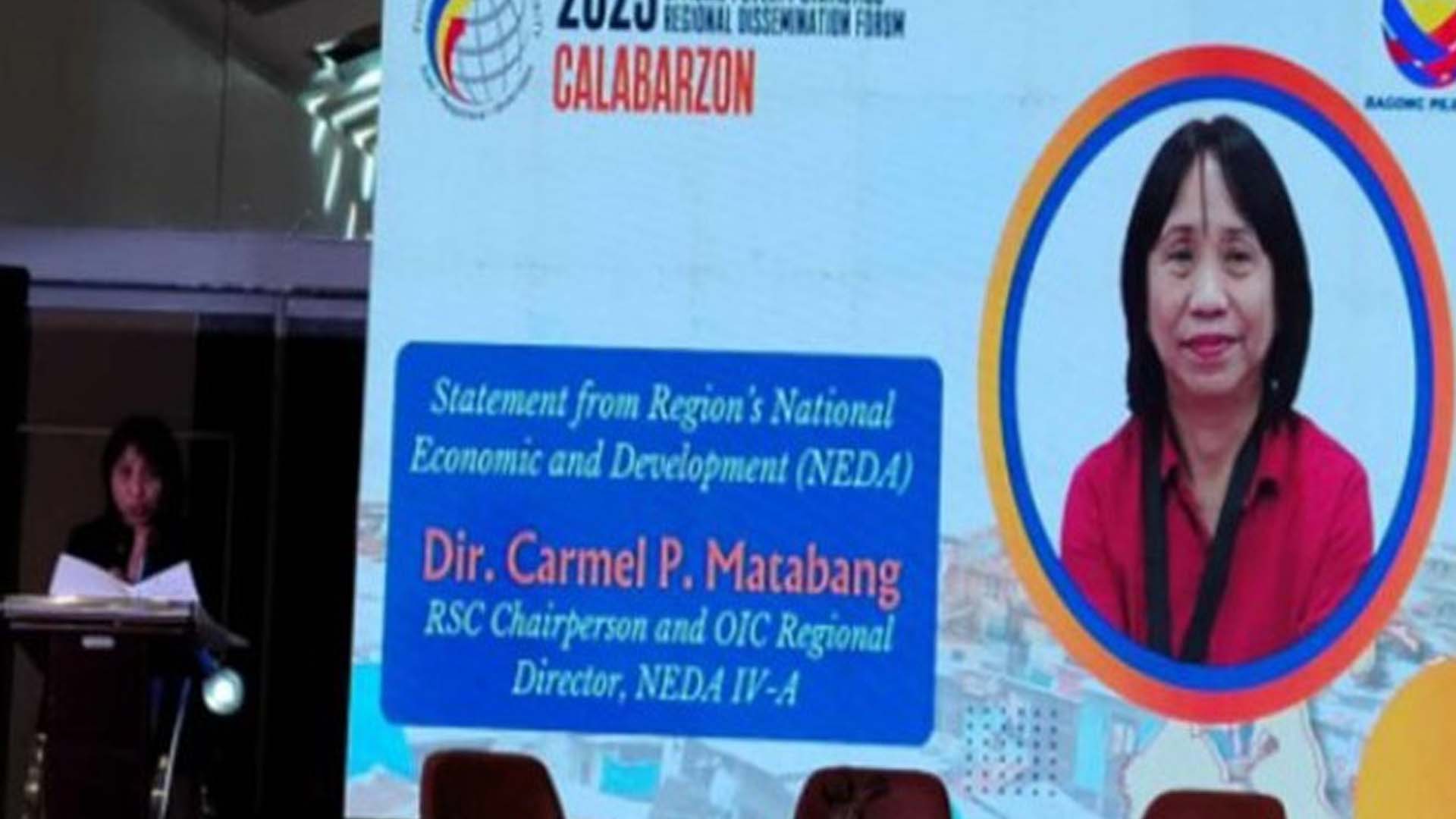The National Economic and Development Authority (NEDA) 4A (Calabarzon) has emphasized the need for strategic interventions to promote sustainable growth and create opportunities for marginalized sectors and communities, by focusing on the industrial and agriculture sectors.
Carmel Matabang, Officer-in-Charge (OIC) Regional Director of NEDA-4A, shared insights during the presentation of the Philippine Statistics Authority’s (PSA) official poverty statistics at Hotel Marciano in this city, highlighting the importance of targeted policies aimed at revitalizing the industrial sector, which experienced a slowdown in 2023.
Matabang stressed the need for particular focus on agriculture, forestry, and fisheries, which play a crucial role in ensuring food security and supporting rural livelihoods.
She noted that in 2023, the sector’s gross value rose from 1.7 percent to 3.6 percent, underscoring the necessity of continued investment in research, technology, and education to enhance competitiveness.
“Strengthening this sector is vital not only for food security but also for empowering rural communities, many of which remain vulnerable to poverty,” Matabang stated.
She advocated for promoting agriculture-related education in state universities to nurture a new generation of farmers, scientists, and entrepreneurs who can drive innovation and sustainability.
Another significant challenge she identified is job mismatch. Out of 11.95 million working-age individuals in the region, approximately 60 percent are economically active, leaving 40 percent engaged in unpaid domestic work and other responsibilities.
“Broadening skills to align with existing and emerging job markets will be critical for ensuring sustained growth,” Matabang explained.
Digital transformation also emerged as a crucial component of the strategy. Matabang emphasized that data and statistics can be powerful tools for poverty reduction by enabling more efficient governance and fostering inclusive growth.
In the economic sector, she highlighted the value of data-driven strategies to identify emerging industries, monitor market trends, and target investments that generate significant impacts on local economies.
Regarding social protection and community empowerment, Matabang noted that digital platforms can enhance service delivery, improve transparency, and expand access to vital programs, especially for marginalized communities.
“By fostering collaboration among government agencies, the private sector, and academic institutions, we can develop innovative solutions to the challenges we face,” Matabang said. (PNA)







